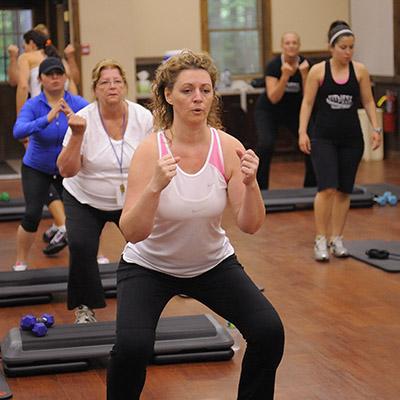If you’ve been struggling to lose weight, maintain a healthy lifestyle, or simply want a fresh start for your mind and body, a weight loss retreat can be a transformative experience. These retreats offer more than a few days of exercise and controlled meals—they provide a holistic approach to wellness. Participants immerse themselves in a structured environment designed to support healthier habits, create long-lasting lifestyle changes, and encourage deep mental and emotional shifts.
Whether you are just beginning your fitness journey or seeking to break through a plateau, weight loss retreats provide a range of experiences to help you reconnect with your body and goals. Here are the top activities you’ll experience at a weight loss retreat and how each contributes to better health.
1. Personalized Fitness Training
One of the most essential components of any weight loss retreat is personalized fitness training. Upon arrival, experts usually assess your current fitness level, health history, body composition, and goals. Based on this evaluation, they design workout plans tailored to your needs.
These sessions often include a combination of:
Cardiovascular exercises, such as walking, cycling, swimming, or interval training
Strength training, focusing on building lean muscle to boost metabolic rate
Functional workouts that improve mobility, balance, and flexibility
Outdoor activities, which challenge the body while offering mental refreshment
The personalized nature of these workouts ensures that you stay motivated, avoid injuries, and progress at a pace suited to your abilities.
2. Nutritious, Balanced Meals and Cooking Workshops
Healthy eating is at the heart of sustainable weight loss, and retreats emphasize this through carefully crafted meal plans. You’ll enjoy nutrient-dense meals prepared by professional chefs using fresh, whole ingredients. These meals are not only delicious but also portion-controlled and designed to provide optimal energy.
Additionally, many retreats offer cooking classes and nutrition workshops, teaching participants how to:
Plan balanced meals
Understand calorie and nutrient requirements
Read food labels correctly
Make healthier versions of favorite dishes
Build long-term eating habits
By learning to cook nourishing meals yourself, you’re better equipped to continue your healthy lifestyle after returning home.
3. Group Fitness Classes for Motivation
Group classes create a fun and energetic environment, helping you stay motivated and consistent. Most weight loss retreats offer a wide variety of classes to keep things interesting and accommodate different interests and fitness levels.
Popular group activities may include:
Yoga, for flexibility, strength, and mental relaxation
Pilates, which focuses on core strength and posture
Zumba and dance workouts, combining cardio with music and movement
Bootcamp sessions, which challenge endurance and strength
Aqua aerobics, great for low-impact full-body workouts
Spinning, offering intense cardiovascular conditioning
The camaraderie formed in these group settings encourages accountability and often leads to lasting connections.
4. Nature Walks, Hiking, and Outdoor Adventures
Spending time outdoors is a powerful element of many weight loss retreats. Activities like scenic hikes, nature walks, trail running, or even kayaking not only help burn calories but also uplift the spirit.
Being surrounded by nature lowers stress levels, increases motivation, and promotes mindfulness. You’re not just working on your physical health but also reconnecting with the natural world—something that can be deeply healing and refreshing.
5. Mindfulness and Stress-Relief Practices
Weight loss isn’t just about the body—your mental and emotional well-being matter just as much. Stress is a common reason for emotional eating and weight gain, which is why many retreats emphasize mindfulness and relaxation techniques.
Activities may include:
Guided meditation
Breathing exercises
Mindfulness workshops
Sound healing or sound baths
Aromatherapy sessions
Journaling practices
These sessions help you identify emotional triggers, enhance mental clarity, and improve focus. When your mind feels calm and centered, it's easier to stay consistent with healthy habits.
6. One-on-One Coaching and Goal Setting
A major benefit of attending a weight loss retreat is having access to professional coaches, trainers, and wellness experts who provide individualized support.
You may engage in:
Personal coaching sessions
Goal-setting workshops
Habit-building guidance
Progress tracking and feedback
These experts help you understand your personal challenges, create realistic goals, and develop strategies for overcoming obstacles. Whether your goal is to lose weight, increase strength, or simply live healthier, one-on-one guidance makes your journey more structured and effective.
7. Relaxation Therapies and Spa Treatments
After days filled with workouts and new routines, your body needs time to recover. Retreats often provide various relaxation treatments to support muscle recovery, reduce stress, and rejuvenate the body.
Common spa services include:
Deep tissue or Swedish massages
Hot stone therapy
Detoxifying body wraps
Infrared sauna sessions
Hydrotherapy
These therapies enhance circulation, relieve soreness, and provide deep relaxation—making your retreat experience more balanced and enjoyable.
8. Educational Workshops and Lifestyle Seminars
Real weight loss goes beyond diet and exercise; it requires lifestyle changes. That’s why many retreats include educational workshops designed to help you understand health from a holistic perspective.
Topics may include:
Sleep health and its effect on weight
Understanding metabolism
Emotional eating and coping mechanisms
How to build long-term fitness habits
Time management for wellness
Creating personalized wellness routines
These sessions empower you with the knowledge needed to maintain your progress long after the retreat ends.
9. Community Support and Positive Social Interaction
One of the most uplifting parts of attending a weight loss retreat is the sense of community you’ll experience. Everyone shares similar goals, encouragement flows naturally, and there is a sense of unity that helps participants stay motivated.
Sharing stories, celebrating victories, and learning from others’ journeys all contribute to a supportive environment. This social connection often becomes a powerful motivator, even after the retreat is over.
10. Post-Retreat Guidance and Follow-Up Support
Many retreats offer extended support after your stay, ensuring the progress you made doesn’t fade. You may receive:
Continued coaching sessions online
Meal plans and fitness guides
Access to mobile apps for progress tracking
Virtual workshops and group check-ins
This follow-up care keeps you accountable and ensures you stay aligned with your goals.



